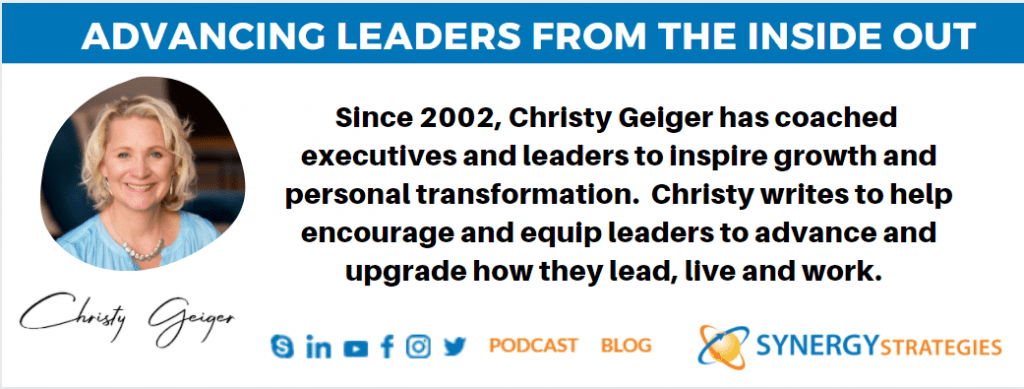
Through childhood you educate yourself to understand what you do not and grow an area of skill and expertise. One of the exciting highs of being in your teens and early 20’s is finally hitting the tipping point when you have areas that you can teach and mentor and are not feeling like the ignorant “child” who does not know. Our ego greatly enjoys “knowing” and feeling like the expert or at least having capabilities and skills.
As we move into adulthood and have become proficient in different things the ego wants to rest in what we know. It feels better and feels good. The challenge is learning and growth doesn’t stop at High School and College. Life is a constant learning process, however many really do feel they have “arrived” and plateau in their current level of awareness and learning. One reason this is hard is that once academic learning is in motion it is easier to use that as a concrete measurement of our growth. As an adult, more learning comes from your EI (Emotional Intelligence), maturity/attitude and mindset/self-awareness. This is much less tangible and difficult to measure.
As leaders, however, ongoing growth is critical. There are four stages of learning that help as you navigate any growth, but particularly growth that is uncomfortable as an adult. These stages help because the pain points of learning can create resistance and discouragement – so knowing the stages helps to stay focused on growth and moving to great competency.
The stages are:
#1) UNConscious INCompetence – We don’t know what we don’t know. You are unconscious of those things you do not see, are not aware of and do not realize are a problem. At times leaders will say, “I didn’t INTEND to hurt you”, “That isn’t what I INTENDED”, etc. Of course, few people intentionally try to be a poor leader. Poor leadership comes from the lack of intentional GROWTH to be a better leader. Intentions are not an excuse to get a pass for a problem, rather a motivation to improve and develop. The reason we do 360’s with leaders, coaching, training, reading books, etc. is that as humans we are not aware of our blind spots, weaknesses, and challenges. We are UNCONSCIOUS of these things we do not know – which clearly we do not intend, however, your unintended incompetence has a massive impact and is greatly problematic. As leaders, you have to be intentional about understanding your gaps in order to grow through them and level up.
#2) Conscious INCompetence – Once you TRULY understand your gaps, you start to see them. If you have ever been a part of Toastmasters, it is only a matter of time before your ear becomes quickly attune to ahs and ums. You start to hear it from yourself and others. You say it and have a physical reaction because you can’t believe you just said it AGAIN! It feels frustrating because you didn’t mean to say it, but yet it happens without you trying. It feels frustrating and annoying because you are trying to not do it, you didn’t think you really did it that often and suddenly you realize just how often you do. This is Conscious Incompetence. It happens with many things. Other examples might be: lack of delegating, interrupting, looking at your phone when someone is talking to you, raising your voice, rolling your eyes, glaring, not confronting, being avoidant or passive when you needed to speak up, unclear communication, being squishy in communication, not holding people accountable, procrastinating, stress eating, getting angry, etc. They are things we do that make us less competent in life, work and leadership that hold us and those around us back. Becoming conscious of this gap is painful, frustrating, discouraging and overwhelming. Even for the positive person who loves growth, it is challenging to realize a personal gap and if it is a “real” challenge (vs. something simple that is not really a personal challenge), it will cause a feeling of slight hopelessness and overwhelm in mastering this gap. (That is how you know you have a “real” gap and not an ego-soothing fake one.) This stage often takes a long time because it has several parts from growing in awareness of the gap to developing the skill to close the gap.
#3) Conscious Competence – As you intentionally work to close the gap, you will hit a sweet tipping point where you start to feel like you are getting it. You did it accidentally and realized later you did a great job. You reflected on the week and realized you were doing or not doing the gap you have been working on and didn’t even notice. Someone else comments on how you are different and you realize that is what you have been working on. This is Conscious Competence setting in. It is exciting and encouraging. Your mind and energy are elated in hope that you CAN do it and there is progress and hope! It is important that you keep working on it and not check it off when you reach Conscious Competence, however, because this is where you are creating habits and locking in the new competence as a new way of being. When people stop too quickly, they regress and lose the skill that was gained because it was not mastered, just practiced for a period of time. Conscious Competence is not mastery, just proficiency. You know you are in this stage when you are “winning” and doing it without thinking at times, doing it when thinking about it at times and at times still fall to old ways – catch yourself and correct.
#4) UNConscious Competence – As you continue in intentional work and practice on this skill, your conscious effort is important. One day you will find it is just part of you, it doesn’t require thinking about it, you don’t catch yourself doing it the old way and needing to correct, you are consistent and strong in the execution of this skill. You are aware of yourself doing it at times and at other times it is the default behavior. This is the stage of mastery, UNConscious Competence. This is a new level and one that you can enjoy. At times you might check up on yourself to make sure you didn’t move from level 3 to 4 too quickly and think you were in mastery when you were just proficient. Proficiency has a tendency to backslide when not fully mastered. UNConscious Competence, however, happens all the time. Consider your learning as a child – do you have to think about talking? do you have to think to add or multiply basic numbers? do you have to think to write? Remember as a child these were the same learning stages you went through then too. If you have ever learned a second language as an adult, you can literally feel the stages. Hard skills and soft skills use the same stages, they are just easier to see. It is fun and a joy to reach stage 4, UNConscious Competence. As leaders, there are many levels of leadership and skills that we must be intentional about developing all the way to UNConscious Competence… this is part of mastery in leadership. It isn’t about being perfect, just noticing your skills, what is getting in your way and intentionally developing in the area that will support you to be your best for your team, organization, and mission.
#levelup #leadership #learningstages #challenge #competence






